Queen Hardy cartwheeled across the grass, arms and legs spinning.
The pink and teal unicorn on her shirt sparkled in the sun.
So did her glasses.
Her eyes.
Her smile.
Everything, really.
That’s just how this 8-year-old girl greets the world—sparkling with energy and enthusiasm.
Even in this past year, as she underwent treatment for leukemia, Queen did not lose that sparkle.
“With everything she went through, she is still strong,” said her mother, Markesha Jennings. “She had her bad days, but she still kept a smile on her face.”
Now that Queen is in remission and on maintenance chemotherapy, the most difficult phase of treatment is behind her.
And that means she can return to school. And play in the front yard with her 3-year-old sister, Ariss.
She performed cartwheels, round-ups, backbends and handstands.
She led Ariss by the hand up a couple of porch steps. They laughed as they jumped into the grass.
“Lovely, lovely,” Markesha said as she sat on the front porch. “I just say, ‘Thank you, God. Thank you, thank you.”
A rare form of leukemia
Named Queen Lyris Hardy by her dad, Edward Hardy, Queen has grown into her name.
“She is so energetic and fun,” Markesha said. “She is just loveable.”
Markesha remembers the day Queen first showed signs of illness: June 15, 2020. Queen, then 7, said her right arm felt sore. At first, Markesha thought she bumped it while playing.
“At night, she was whining and crying, so we decided to take her to the hospital,” Markesha said.
At the emergency department at Spectrum Health Helen DeVos Children’s Hospital, Queen underwent an MRI, followed by a bone marrow exam.
Pediatric oncologist Sharon Smith, MD, met with Markesha and Queen and explained that Queen’s bone marrow cells had been replaced with leukemia cells.
Queen moved to the ninth floor of the hospital that day to begin treatment.
Queen had acute lymphoblastic leukemia. Further testing showed she had a rare form of it—called Philadelphia chromosome positive.
“Only 3% to 5% of children with leukemia have this subtype,” Dr. Smith said.
The condition used to have a poor prognosis, but a new medication emerged in the past decade that targets the proteins created by the affected chromosomes. It has improved survival rates significantly, Dr. Smith said.
Queen took the medication, Dasatinib, along with an aggressive course of chemotherapy.
Her chemotherapy infusions required regular hospital stays at the Ethie Haworth Children’s Cancer Center at Helen DeVos Children’s Hospital for the next 11 months.
Complications from treatment, such as infections, required additional hospital stays.
Queen formed fast friendships with her health care team members.
“She loved the nurses and the nurses loved her,” Markesha said. “She just lights up a room. She is always dancing.”
“She is absolutely delightful,” Dr. Smith agreed. “She is like Miss Personality. She loves to interact with her providers and tell jokes.”
On tough days, Queen was a bit quieter. She watched movies or colored pictures. And on most days she stayed in the hospital, she created a TikTok video.
Queen’s fashion sense extended to her wigs. After her hair fell out, she had five wigs in her collection—including one made by her grandmother.
Each day, she picked her wig to match her mood.
Back to home and school
In May, Queen started a milder, maintenance phase of chemotherapy.
Instead of going to the hospital for infusions, she takes her medication at home. Every morning, she downs five pills and liquid medicine.
“When her doctor told her she could go to summer school, she was so happy,” Markesha said. “She couldn’t wait to go back.”
Now Queen is in third grade and looking forward to celebrating her ninth birthday this fall. Her favorite part of school? Eating breakfast and lunch.
Markesha marvels at the way her daughter has jumped joyfully back into home and school routines.
“To her, this was just a little hiccup. A scratch,” Markesha said. “She is so strong.”
Where does that strength come from? Markesha talked with her daughter about courage at a recent visit to the oncology clinic. Queen sat on the exam table and colored pictures as she waited to see Dr. Smith, a nurse, and a Child Life specialist.
“Do you think you’re strong?” Markesha asked.
“Yeah,” Queen said.
“Why?”
“I don’t know.” Queen kept her head down, focused on coloring. “Because I’m brave?”
“Why are you brave?” her mom asked.
“Because you’re brave.”
Markesha smiled. “I think it’s the other way around,” she said. “I think I’m brave because you’re so brave.”
In the future, Queen hopes to be a gymnast.
Her mom hopes “for the cancer to stay away. And for Queen to be her jolly self—like she has been through it all.”
Dr. Smith, who sees her at regular clinic appointments, hopes for a healthy future for Queen.
“She has an excellent prognosis,” she said. “I expect her to go on to do whatever else she wants to do in life.”
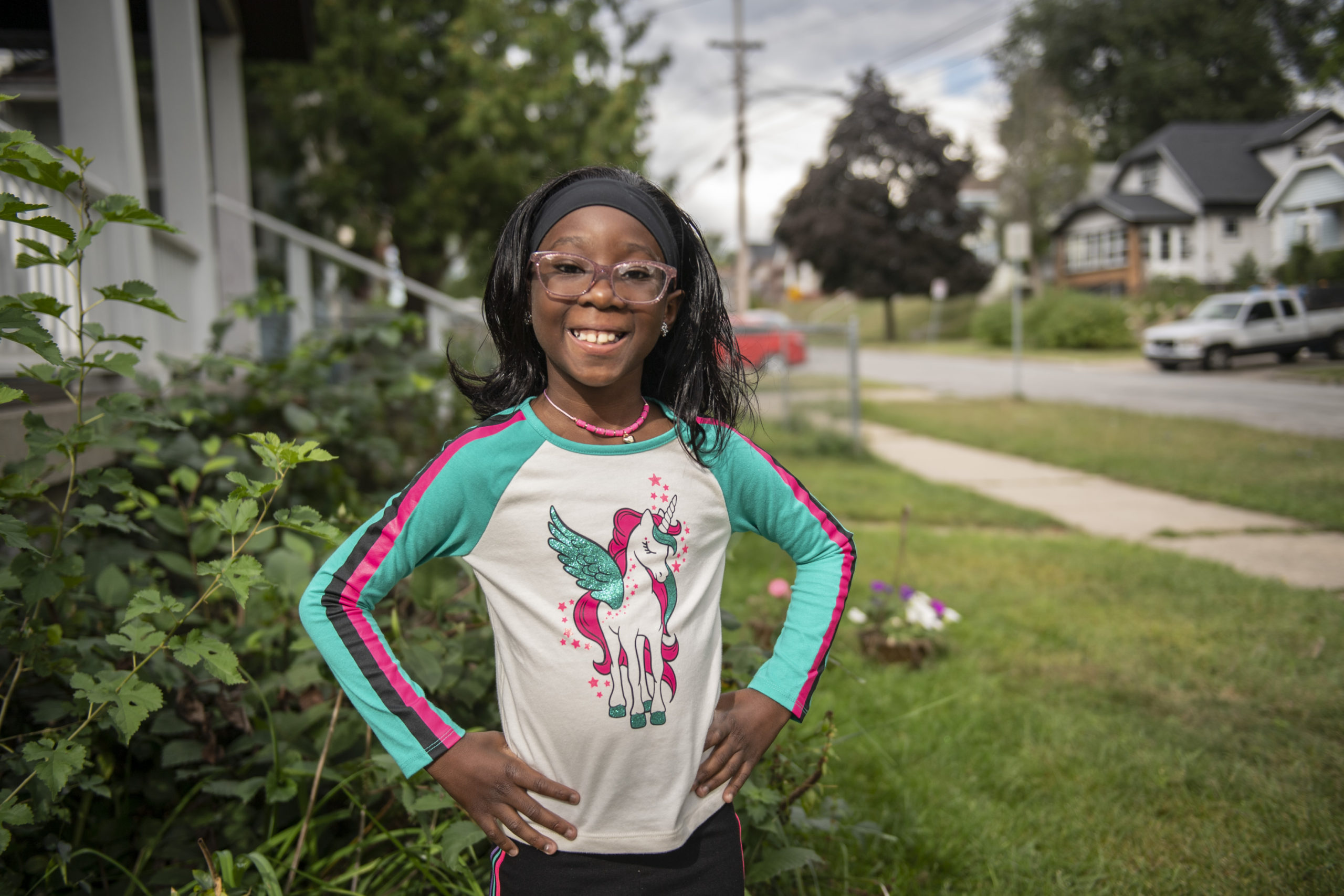

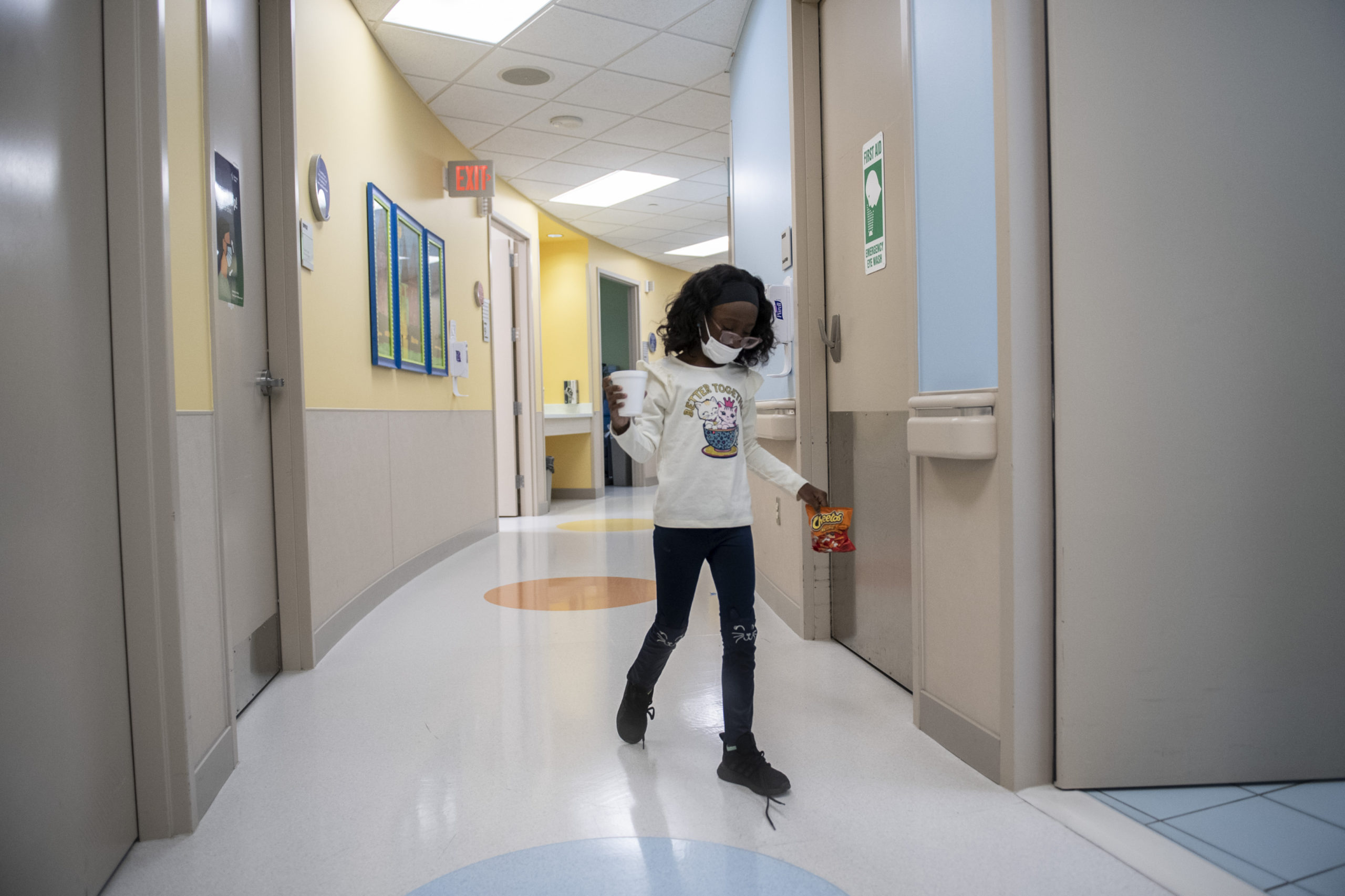
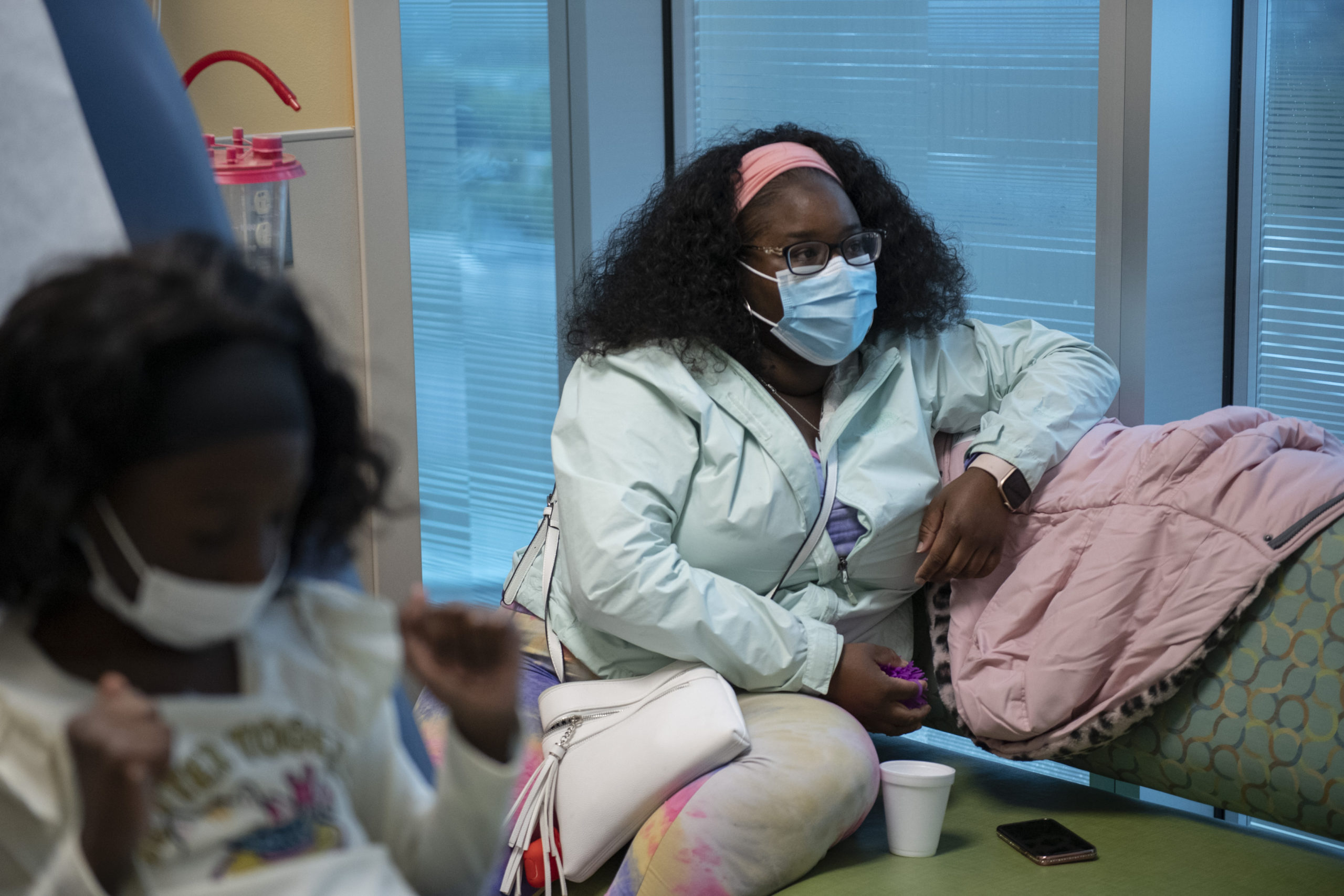
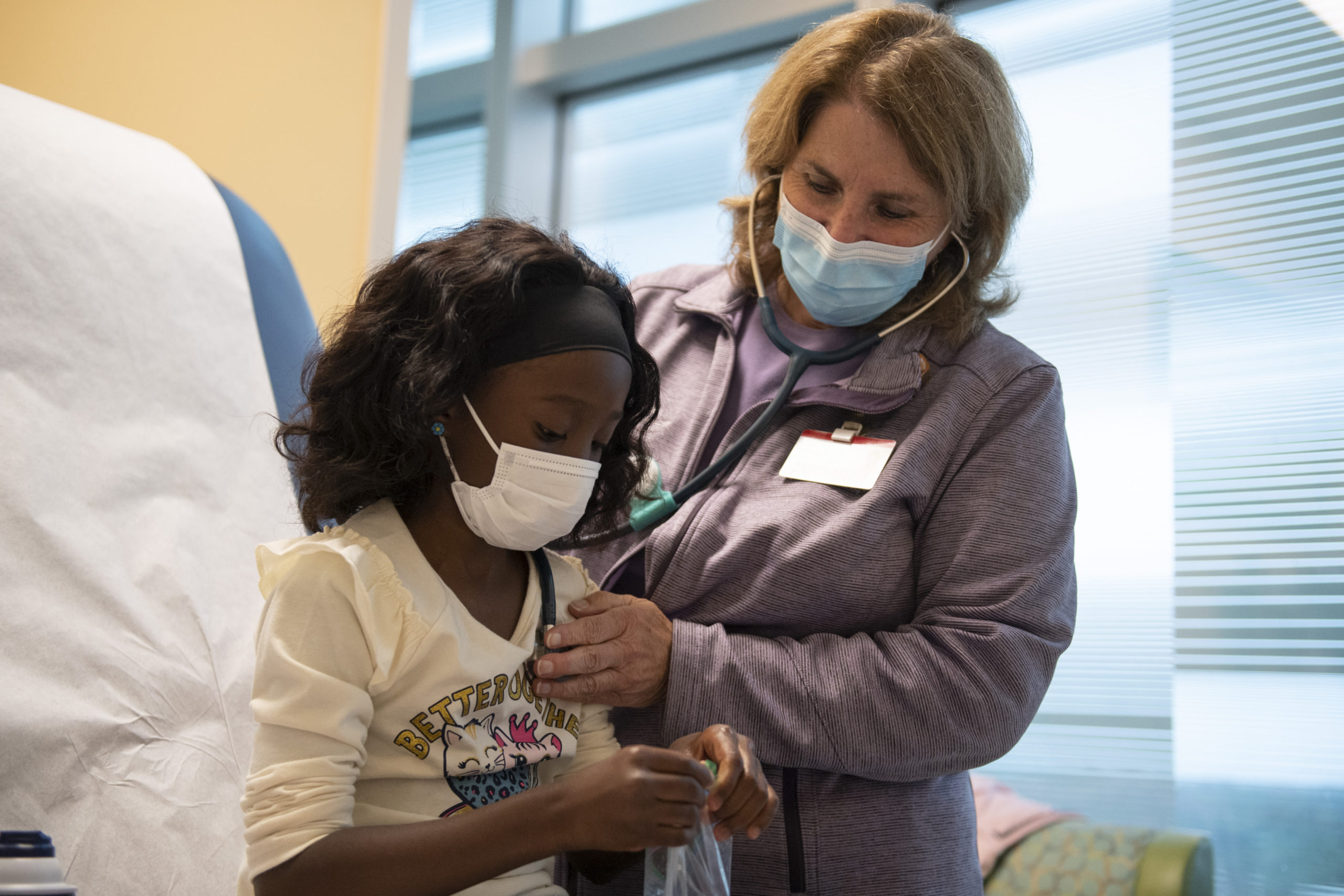
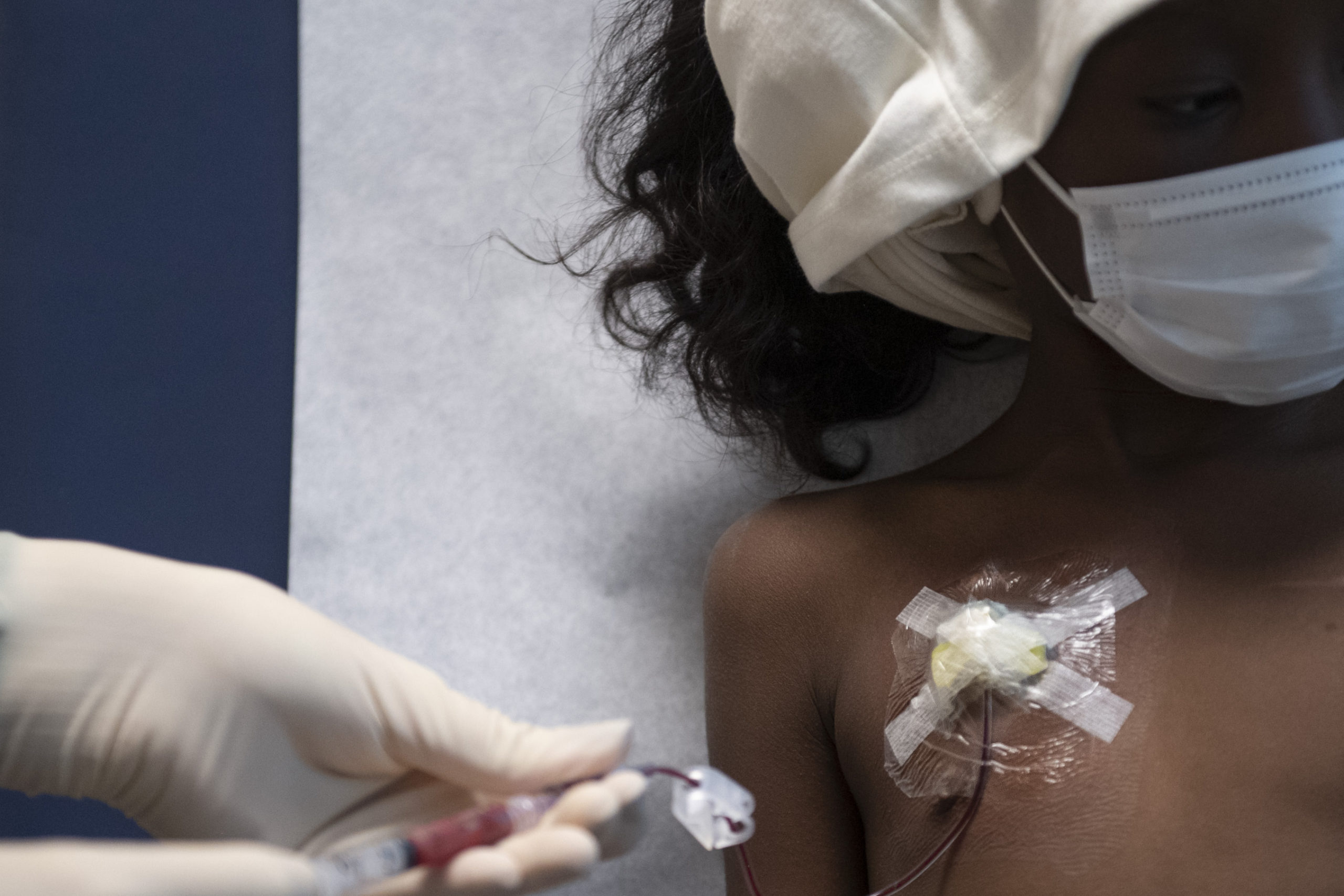
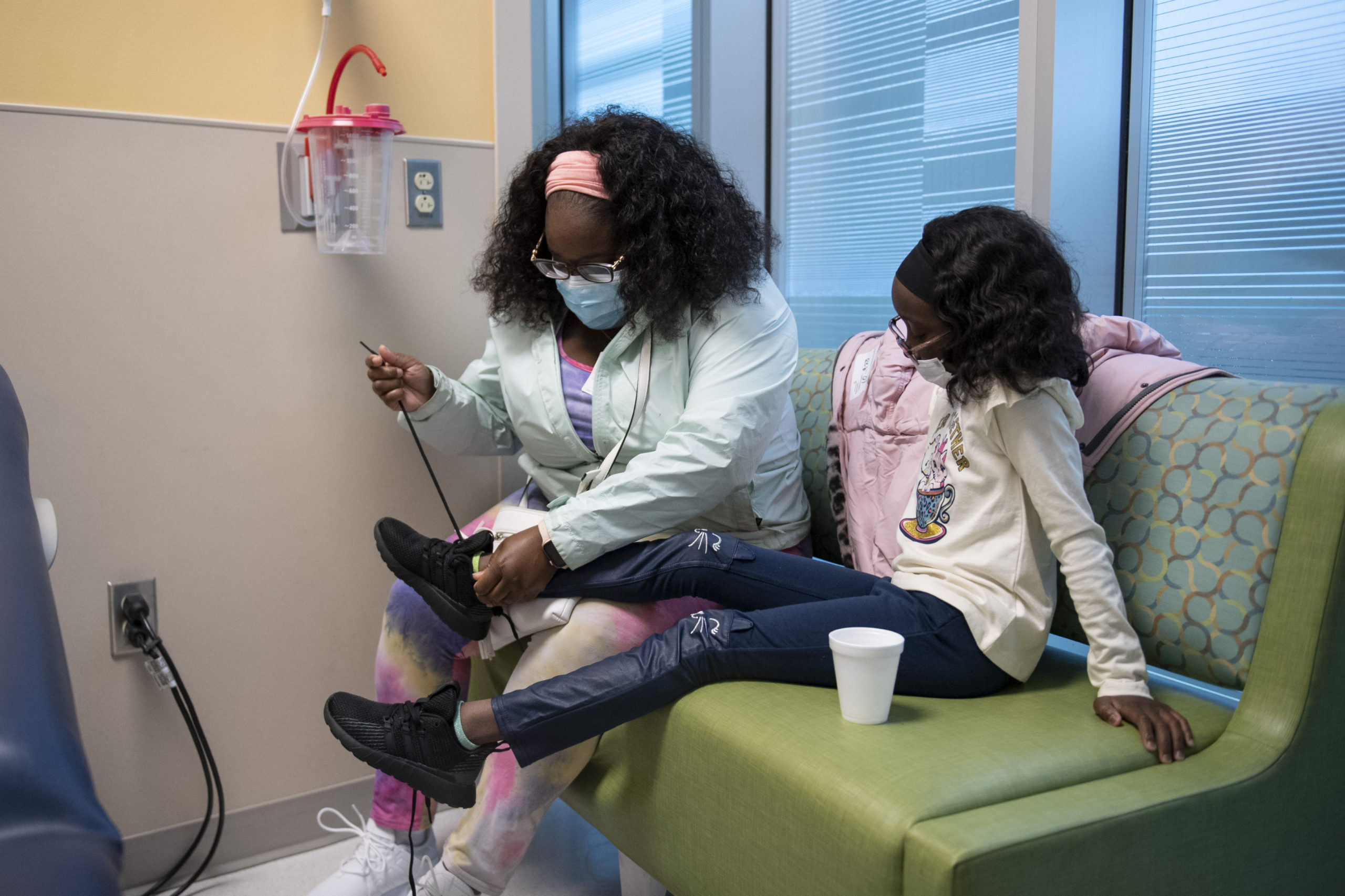
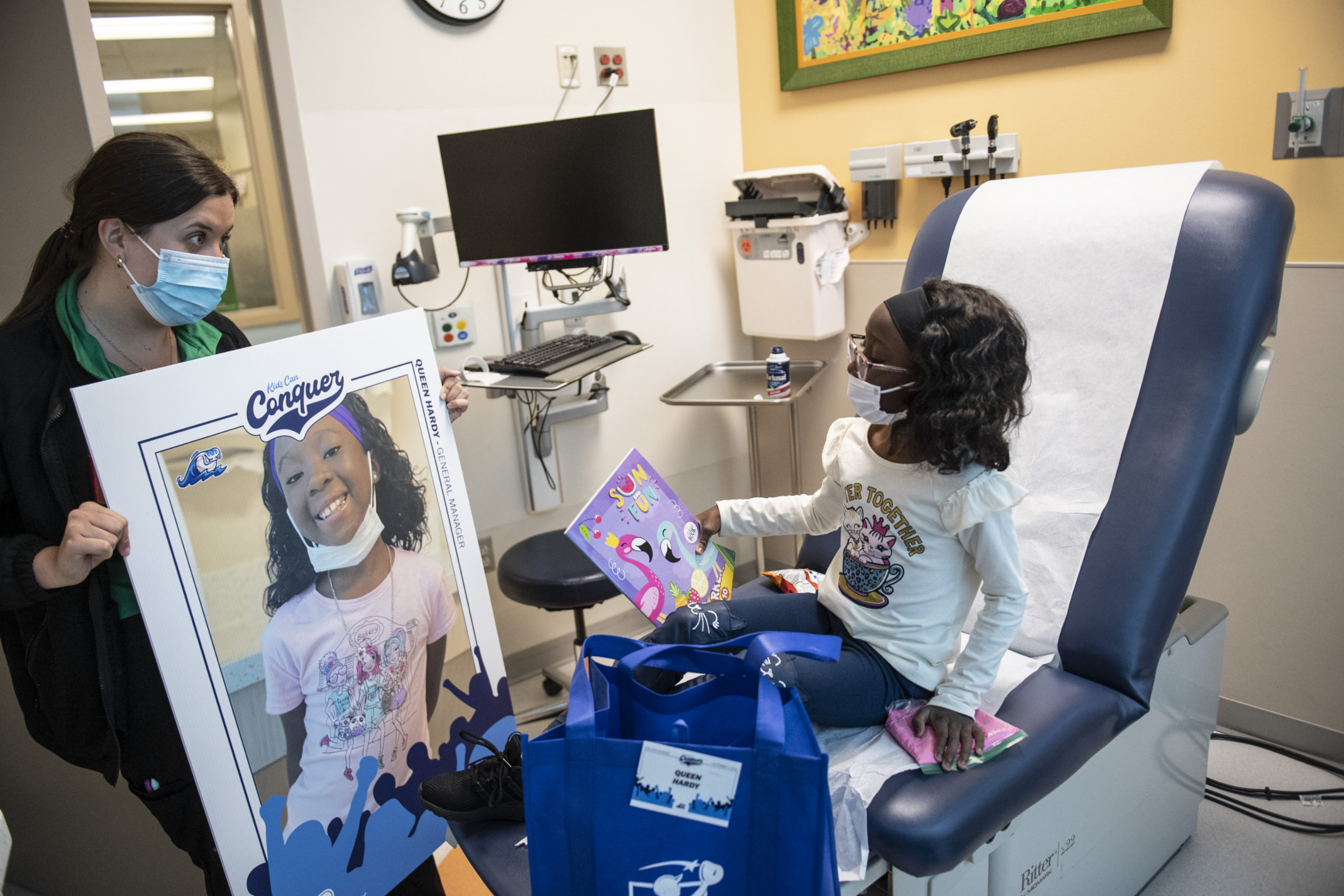
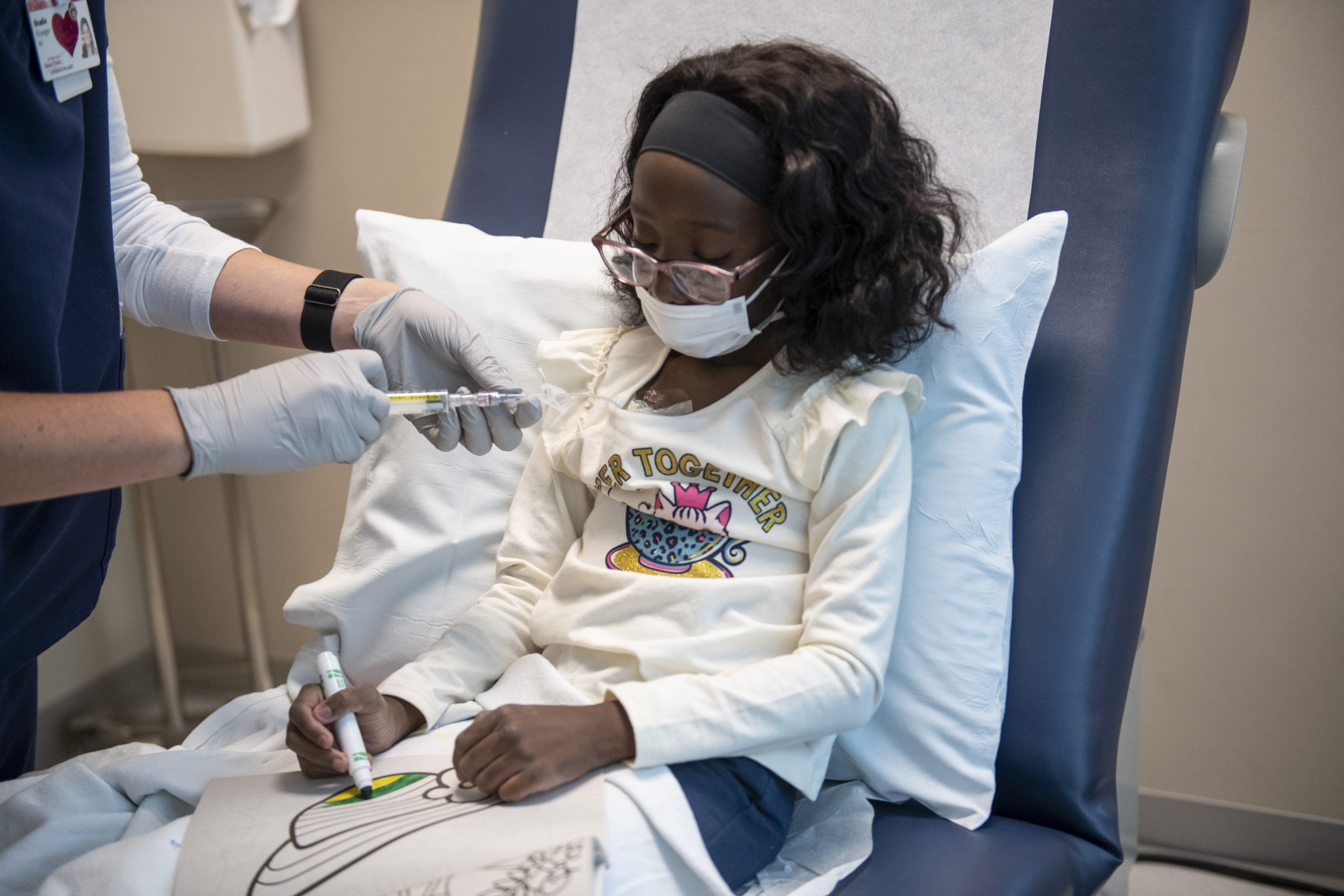
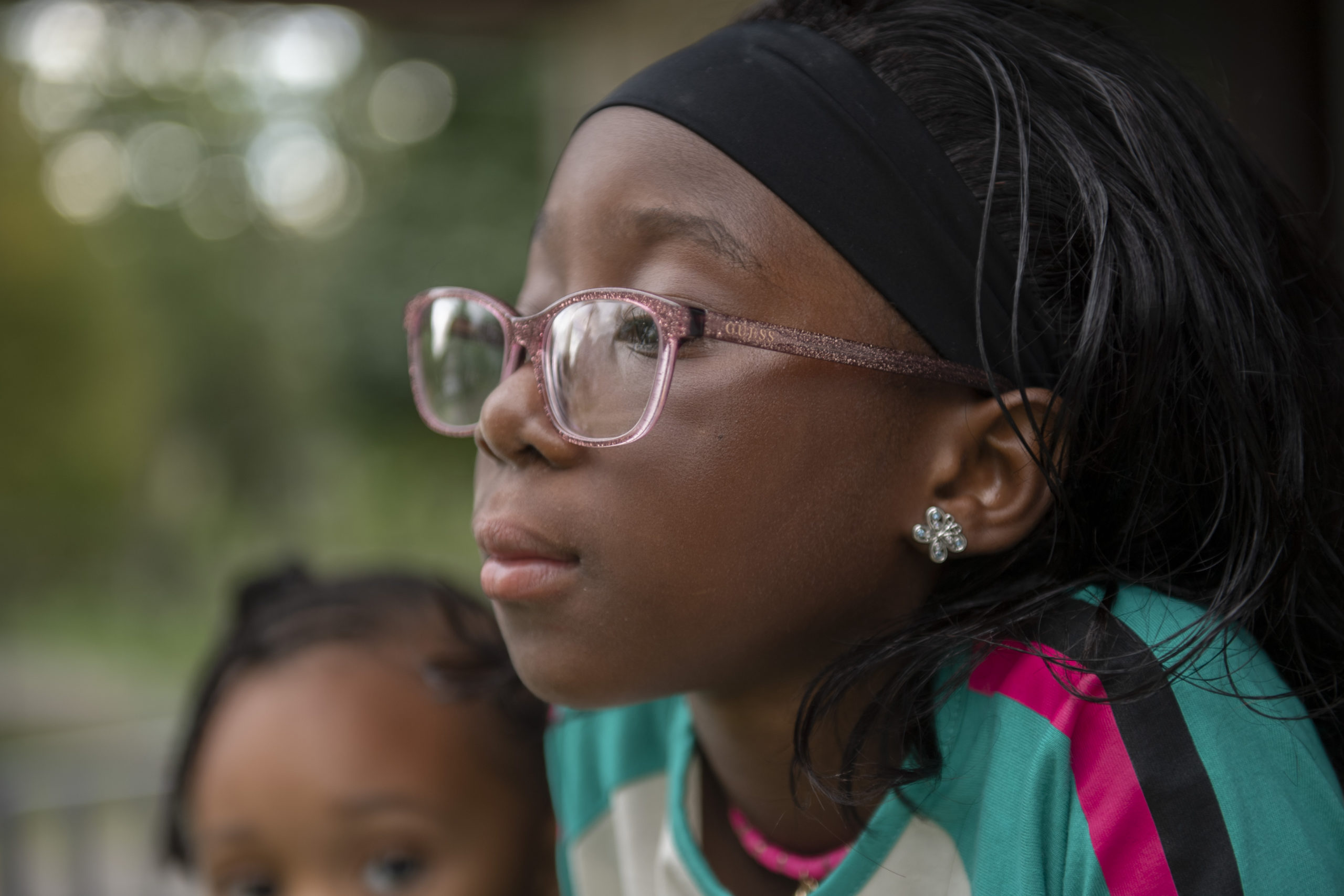
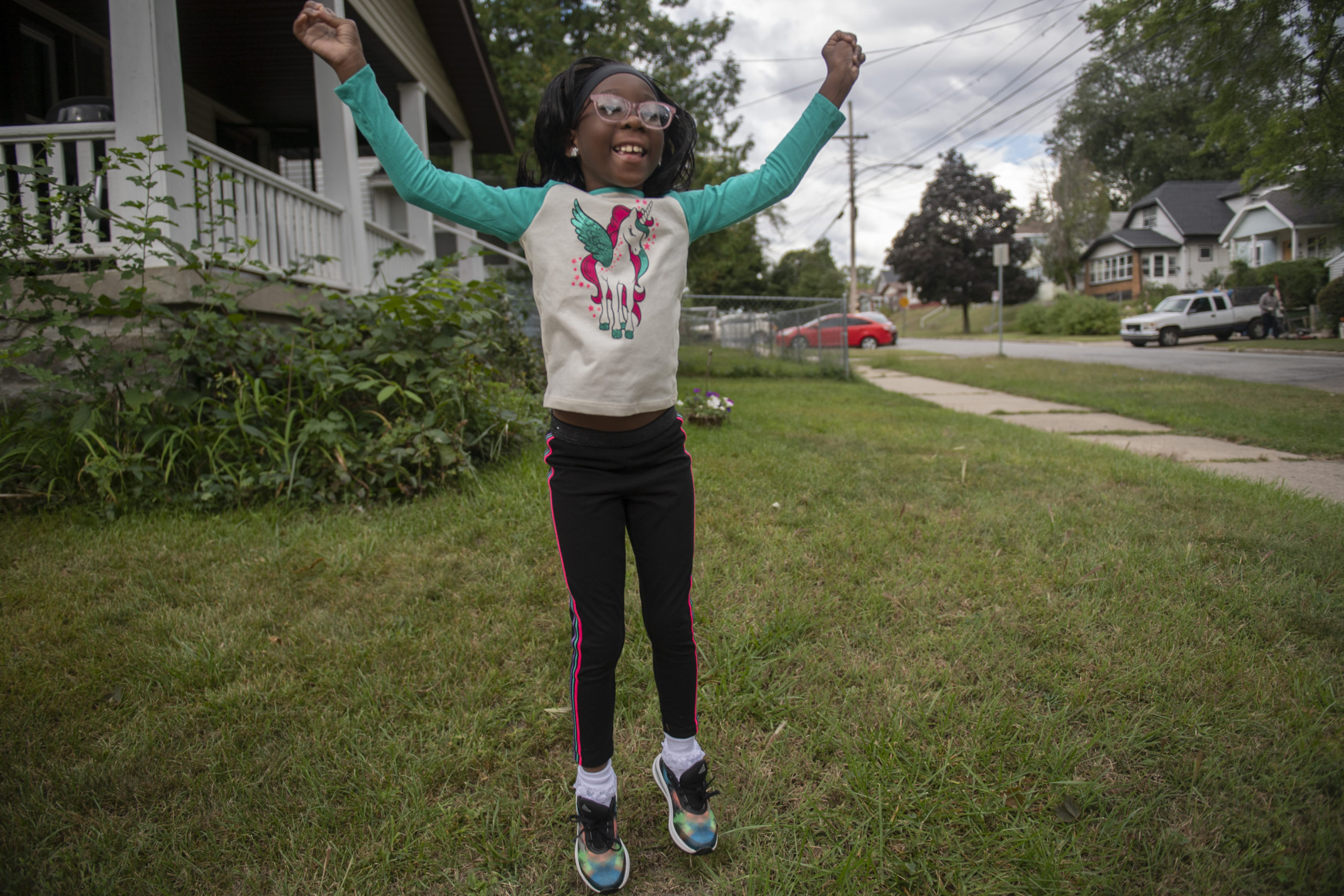
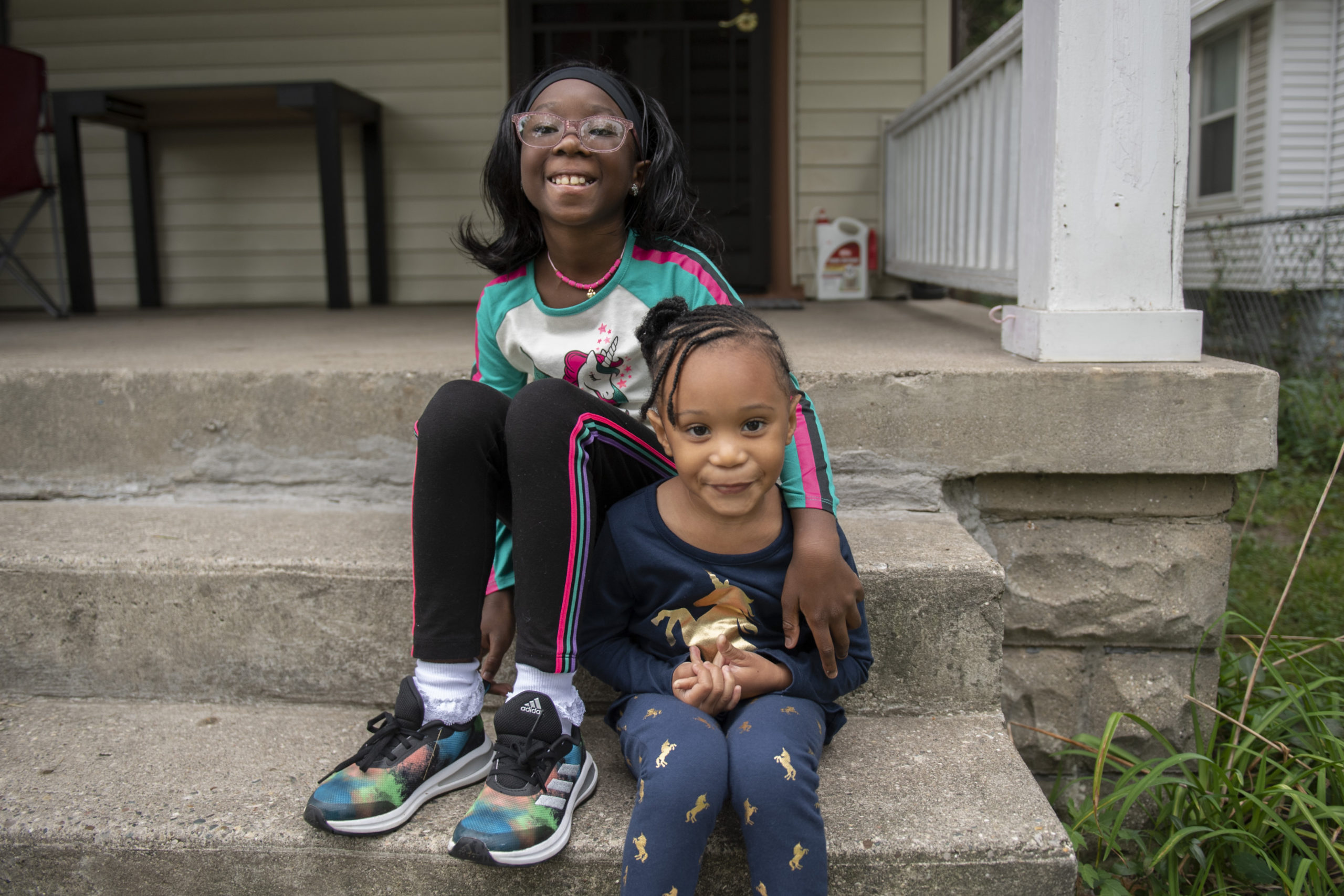
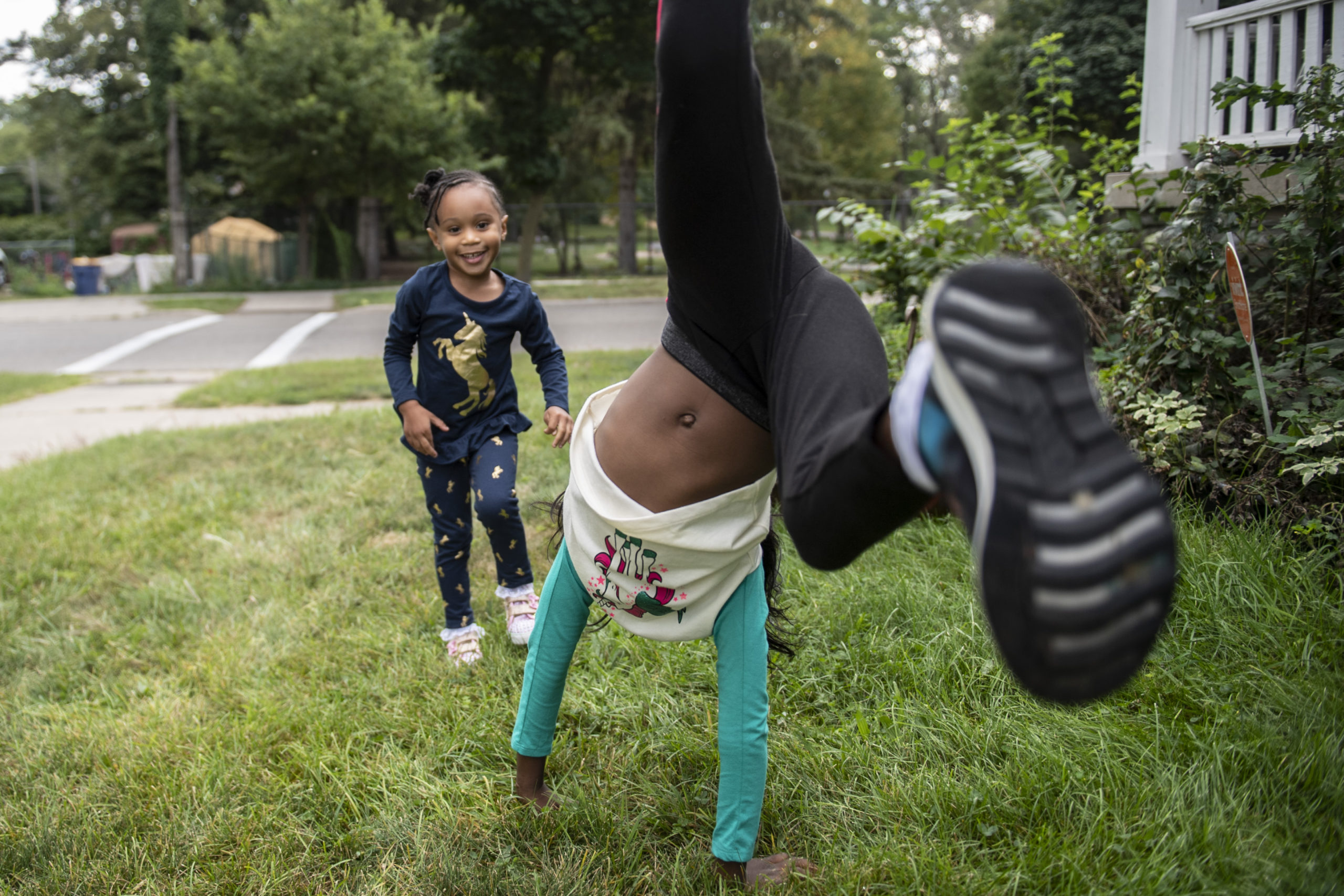
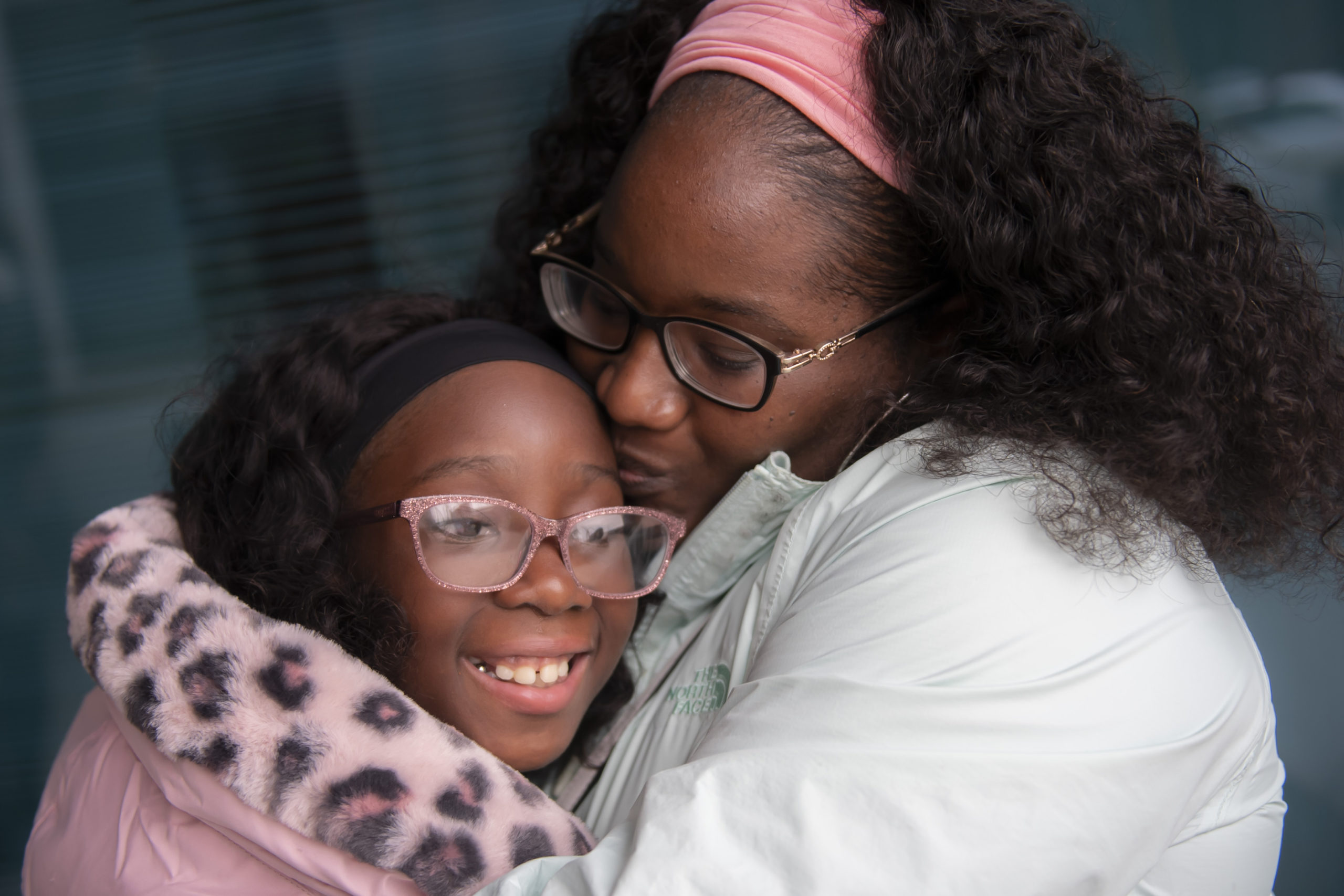
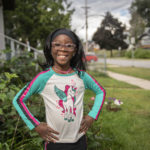
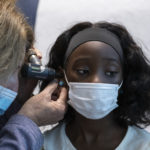
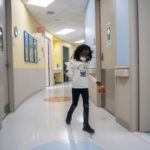
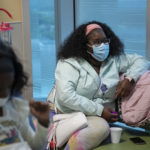
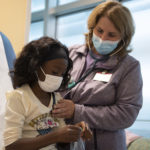
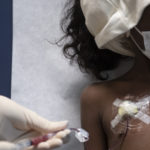
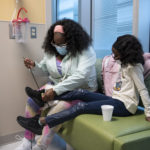







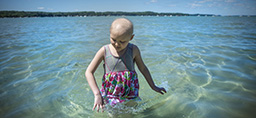 /a>
/a>
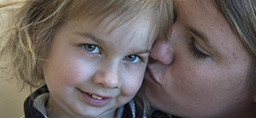 /a>
/a>
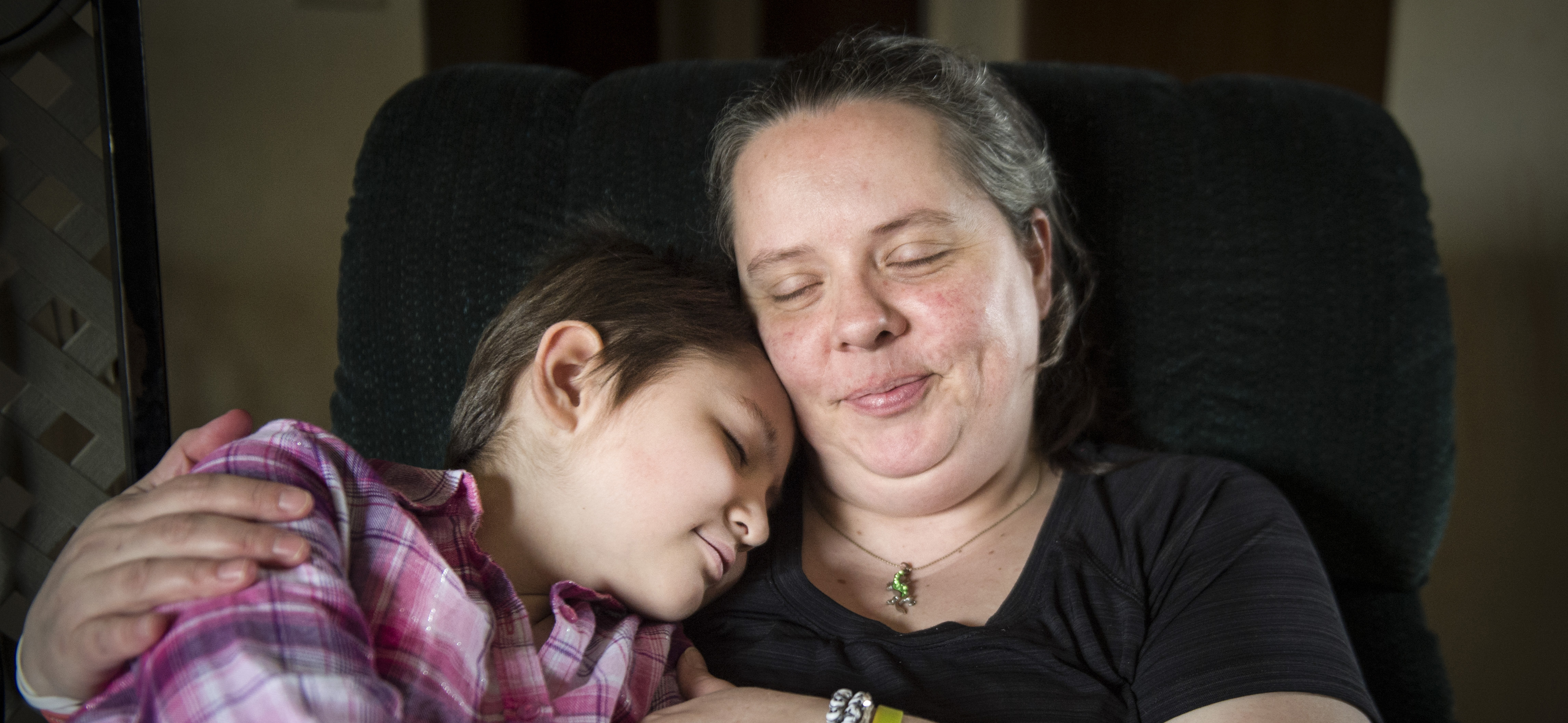 /a>
/a>
Great uplifting article. Best of luck to you Queen!
What a beautiful little girl with a contagious smile. Hope that she makes a full recovery
Markeisha, may God continue to bless you and your family in a mighty way. Queen you are my inspiration….You Rock!!!!!❤️